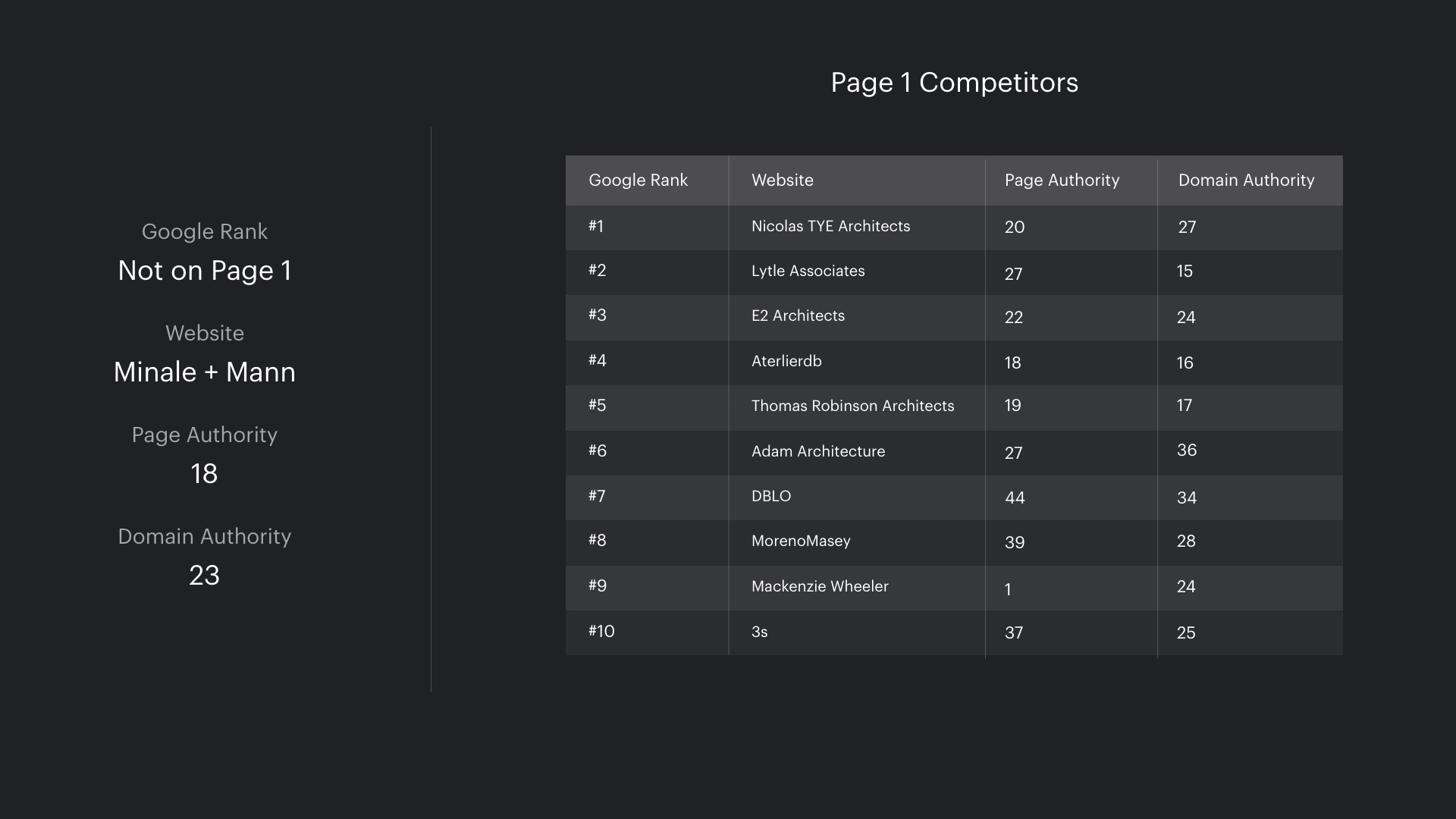As Marketing Managers, there can be a lot of pressure on us to secure those coveted number 1 ranking positions in Google. With so many of our competitors also investing in their digital marketing and search engine optimisation strategies, we’re not the only business in the race and the playing field doesn’t stand still. So how can we best invest our time and marketing budget to increase our keyword rankings and outrank our competitors?
Today we’re going to focus on how to choose the right keywords for your SEO strategy. We’re going to do this by using the data available to us to select keywords for which we have a statistical chance of ranking well.
In this article we’ll cover:
- How Google ranks websites
- How to analyse keyword difficulty
- How to measure website competitiveness for a keyword
- How to choose the right keywords to perform better in Google
How does Google rank websites?
Google’s company mission is to ‘Organize the world’s information and make it universally accessible and useful.’ In other words, their primary goal is to present the most appropriate content for each search made in their search engine.
In order to do this, they seek to replicate the offline process that we go through in everyday life when deciding who to trust in different scenarios.
If I have a leak in my bathroom then I’m going to look for a trustworthy plumber who has resolved similar issues. If a family member of a friend recommends them then they get bonus points and I’m more likely to give them a call.
Google replicates this by looking at 3 major factors:
1. Trust
Google uses a number of online and offline data points to determine how trustworthy your website is. Generally speaking, older websites with high quality links to them are more trusted than brand new websites with poor link profiles.
2. Specificity
This refers to how well optimised your website and individual pages are for particular topics, services and products. The more focused that your content and tags are for certain keywords and topics, the higher the specificity.
3. Contextual trust
This is a hybrid of trust and specificity. Google needs to determine that you are trustworthy for a specific topic, product or service in order to rank you highly in the search engine results pages (SERPs).
Of course there’s also a much longer answer to this question that involves Penguins, Pandas, Mockingbirds and Medics but we’ll save that for another day when we’ve had more coffee.
How to analyse keyword difficulty
Keyword difficulty or competitiveness is reported by most reputable SEO tools such as Moz, SEMrush, Ahrefs and Google Ads. These statistics are great to use as a guide when narrowing down your long keyword list, but there is a much more accurate way to analyse difficulty.
At Plug & Play we use Moz’s domain and page authority scores to review how competitive a particular website is for a keyword based on the websites currently holding the top 10 positions in Google for that term.
For example, Minale + Mann is an architectural firm in London and their marketing team wanted to rank for the keyword ‘commercial architects’. Their website has a domain authority of 23 and a page authority of 18. Below, you can see a table of the companies ranking on page 1 for ‘commercial architects’ when we first started working with them.
When you compare Minale + Mann’s scores to those of the websites that were already ranking on page 1 in Google, they had higher scores than many of their competitors. This told us that they had the potential to outrank many of these businesses. In order to outperform them we needed to improve the specificity of their content and the quality of their website code.

After 5 months, Minale + Mann was ranking #1 for ‘commercial architects’ as well as a number of other valuable search terms. Watch the video below to see how we improved Minale + Mann’s rankings.
How to choose the right keywords
The best keywords to target for your SEO will depend upon your current competitive metrics in comparison to the page 1 websites for your potential keywords. Due to this, the best keywords for your business will also evolve over time as your trust metrics grow and competitor behaviour changes.
When selecting the right keywords to target for your business, we recommend that you:
- Group your keywords with similar meaning based on the products and services that your business offers.
- Run each group of keywords through your SEO tool to get the monthly search volumes.
- Review the website metrics (domain authority and page authority) for the businesses ranking on page 1 for each keyword.
- Refine your list of keywords in each group based on the search volumes versus your likelihood of success in gaining keyword rankings.
- Select a primary keyword for each group, along with up to 5 secondary keywords.
- Sense check your keyword selections by ensuring that the intent of the keyword is in line with the content you’ll be optimising.
When choosing keywords it is important to be realistic about what is achievable for the time and budget resource that you have available. Businesses often fall into the trap of picking keyword battles that are too big for them (often tempted by those high search volumes), or engaging in so many battles that their resources are spread too thinly.
Remember that selecting the keywords is just the first step. The ranking improvements are achieved by increasing the specificity of your website content for your selected keywords across your site and ensuring that your website is coded in a way to leverage your website metrics. Take a data lead approach and be honest about your likelihood of success with your selected keywords.
If you’d like some help to select keywords for your business contact us on [email protected] or by calling 0203 993 8236.
Related articles:
How Can SMEs Rank in Search Engines?
Does Size Matter? How 6 Different Businesses Achieved SEO Results

